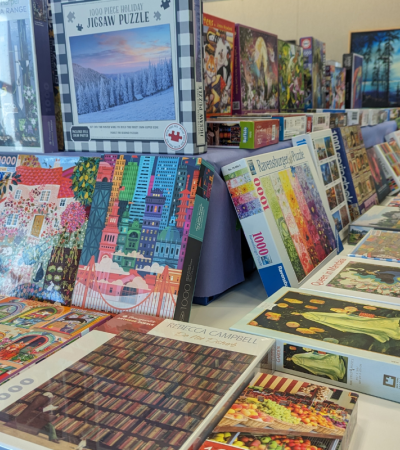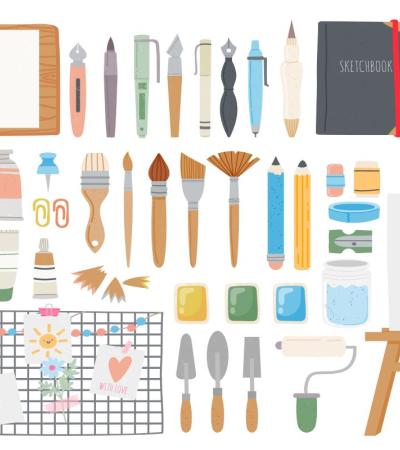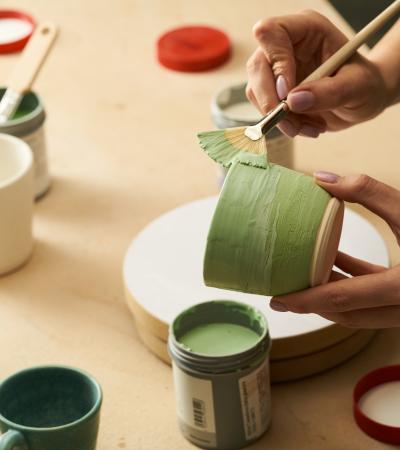In this activity, teams of adults competed to see who could assemble a 300-piece puzzle first in a 90-minute timeframe.
Advanced Planning
Our library has a very successful puzzle exchange program. We saw a neighboring library holding a competition and thought our puzzle-loving patrons might enjoy it. I contacted that library and they kindly shared their process for planning this event.
I worked with my supervisor to choose a date and reserve a room approximately two months before the event. The program was planned for 2:00 - 4:00 p.m. For our event, I selected 300-piece puzzles from the same publisher with artwork by the same artist. The pictures were very similar, but not the same.
Marketing
We promoted the event on our website, Facebook and Instagram. We also provide a paper calendar highlighting each month's programs. Registration was required and we began advertising at the end of January to allow for that. Individuals were encouraged to register, and we would combine them to form a team. We had three teams of four. They were asked to arrive early so we could begin at 2:00 pm.
Budgeting
We used puzzles we already had on hand since we receive so many donations for our puzzle exchange. For the prizes, we used library-themed items that we had on hand (water bottles, blankets, etc.). We purchased black paper plates to sort the pieces. Our tabletops are white, and we thought some folks might prefer black for contrast, depending on the colors of their puzzle pieces. We also purchased a large timer. The total spent was under $25.
Day-of-event Activity
On the morning of the activity, we organized tables and chairs for our teams. Each team had two tables to use for sorting and assembly. We set out the display of prizes and the supplies (paper plates). We also supplied cardstock for the teams to transfer assembled sections to the puzzle. No more than two staff members were necessary for set up and one person ran the event.
Program Execution
Teams chose their table as they arrived. For puzzle selection, I had them all numbered and on a cart - guests could look at them before the competition, but each team drew a number that corresponded to a puzzle. They drew numbers in order of arrival. They were distributed as numbers were drawn and were given the go-ahead to open and start right at 2:00 p.m. We kept the timer where all could see it and announced the time around every 15 minutes. The first team completed their puzzle in under 30 minutes. The others did not take much longer. The groups enjoyed this activity and were interested in a future competition.
This event brought in some people who had not visited our library in the past. Since they were interested in future competitions, we might look into having one during evening hours and see what interest will be.
Advice
It was a fun, easy and inexpensive program. For our next competition, we're going to look for 500-piece puzzles and get several that are all the same.
Supporting Materials
- Feedback (Coming Soon!)
- Programming Librarian Facebook Group




